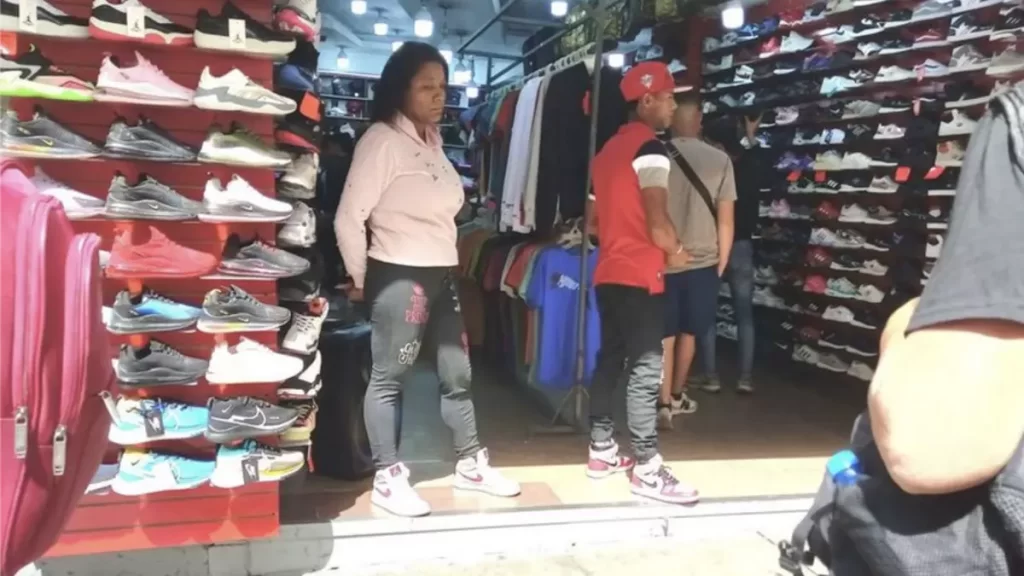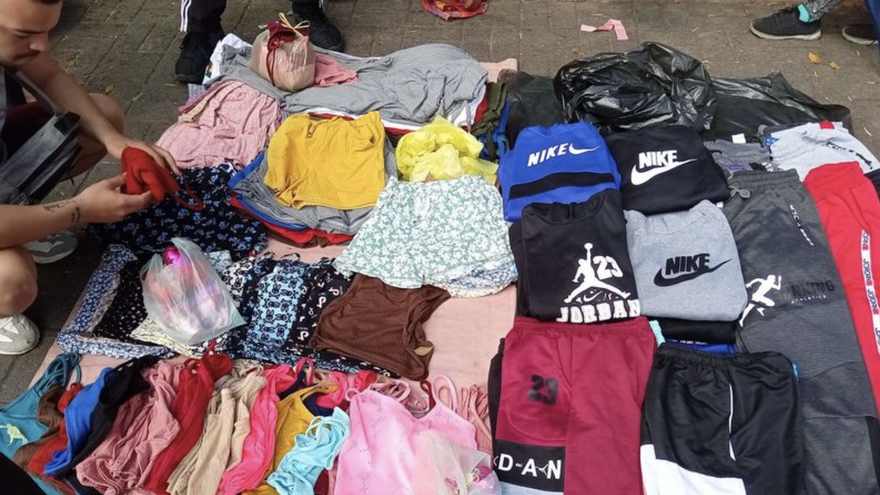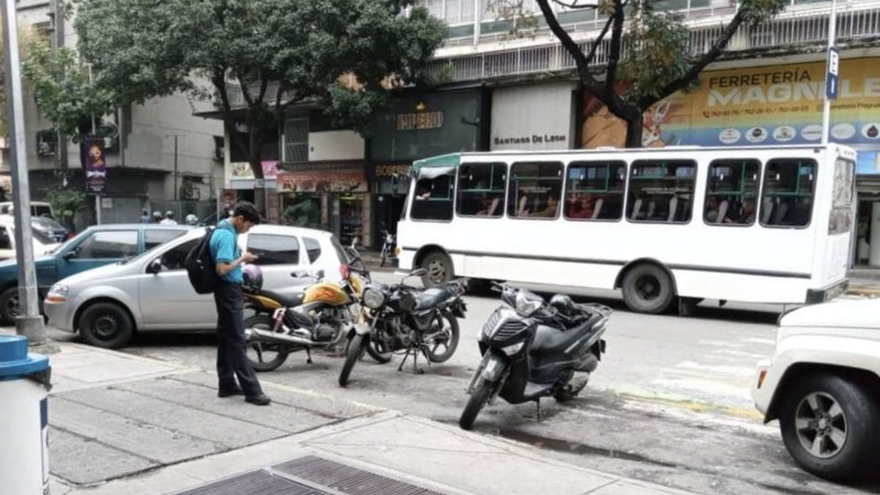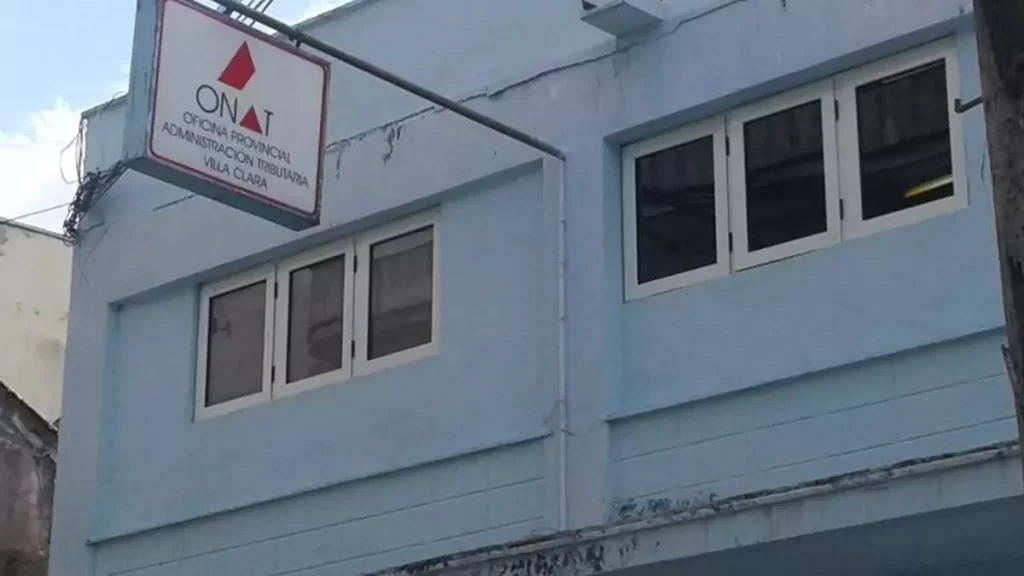María travels to Guyana, Russia, Peru, Colombia or Venezuela to sell Cuban products and buy as cheaply as possible for her store in Camajuaní

![]() 14ymedio, Yankiel Gutiérrez Faife, Camajauní (Villa Clara Province, Cuba), 13 April 2024 — At age 42, María does not allow herself to waste one second. She gets up at 7:30 am, prepares breakfast for her children and runs to open her store, “L & B”, on Camajuaní Boulevard. With the trips she makes as a mule to different countries – bringing clothes, shoes and perfumes to Cuba and carrying rum, tobacco and wines to other destinations – she has managed to set up a business that she tries to keep well stocked.
14ymedio, Yankiel Gutiérrez Faife, Camajauní (Villa Clara Province, Cuba), 13 April 2024 — At age 42, María does not allow herself to waste one second. She gets up at 7:30 am, prepares breakfast for her children and runs to open her store, “L & B”, on Camajuaní Boulevard. With the trips she makes as a mule to different countries – bringing clothes, shoes and perfumes to Cuba and carrying rum, tobacco and wines to other destinations – she has managed to set up a business that she tries to keep well stocked.
Her years of experience as an entrepreneur have earned her a reputation as one of the best business people in the area and she has gained a fairly loyal clientele, who trusts her to purchase quality products.
Before her apparent success, however, María had to make many sacrifices and work very hard. A few years ago, she found the opportunity to travel to several countries and buy wholesale merchandise to resell in Camajuaní. This idea came accompanied by her desire to start her own business, and she had to save every penny for months to pay for tickets and have money for purchases.

After going once to Guyana (in 2017), twice to Russia (in 2018), three times to Peru (in 2019) and two more times to Colombia (in 2022), this year she left for Venezuela with a detailed list of what she was looking for: blouses, pants, shirts, perfumes, appliances and everything that is difficult to find in Cuba or is in high demand. continue reading
Through Facebook groups she found accommodations for the four nights she was in Caracas and, although the place was not in very good condition, she decided to stay with a Cuban residing in Venezuela who rents rooms and offers an affordable rate.
At 20 dollars a night for a room, the price also covered breakfast, lunch, and shuttle service to and from the airport was available to her. However, those days she had to take the nine-kilometer journey by buseta, the Venezuelan bus, to go to the stores.
María knows that on this type of trip she must moderate her expenses and not waste money, since the increase in the price of the dollar in Cuba reduces the economic benefit that the merchandise she acquires gives her. However, she always looks for attractive items that are not on her list and that might interest her clients.
In Caracas, she explored shops and markets in search of the best deals, which are not difficult to find. The shops that offer good prices, and where Cubans go, are often managed by Chileans, Colombians, Chinese, Turks and Arabs. Each seller has their own trick, and travelers like María create their own map of the places that can be approached and which ones will try to overcharge.
At the La Hoyada market, for example, she can buy cheap clothes: overalls, coats and shorts for $5 each, or three sweaters for $10. On Sabana Grande Boulevard, however, it is better to buy shoes. There you can find brands popular among young people, such as Jordan, New Balance, Nike and Adidas at bargain prices, between 15 and 35 dollars, while the originals can cost up to 200 dollars.

One goes to Arab stores in search of fragrances. Perfumes that are popular among customers, and that are highly valued in Cuba, can be found for up to a dollar. On the other hand, in Chinese stores it is better to buy cosmetics and jewelry.
In the streets surrounding the Cemetery Market there are also many different things to buy: sets of sheets for 8 dollars, mixers for 15, Reina-brand pots for 50, fans for 12, hair dryers for 10, irons for 20, and they are sold by Turkish merchants.
After the last search, and after loading the merchandise into two 23-kilogram suitcases, María does not know if she will ever repeat the journey again. The trip back to Cuba is full of anxiety and stress, especially when passing through the eyes of airport officials and customs restrictions. At times, she recounts, she has been mistreated, or, in addition they have made her lose part of the merchandise.
Once the controls have been cleared comes the “hardest” part: selling the products in Camajuaní. Arranging the goods on display, making calculations and examining the goods – which sometimes arrive in poor condition – do not always guarantee success. María knows that she competes with mipymes (MSMEs) and other Camajuaní merchants who, like her, travel and sell for a living.
Translated by Norma Whiting
____________
COLLABORATE WITH OUR WORK: The 14ymedio team is committed to practicing serious journalism that reflects Cuba’s reality in all its depth. Thank you for joining us on this long journey. We invite you to continue supporting us by becoming a member of 14ymedio now. Together we can continue transforming journalism in Cuba.
















